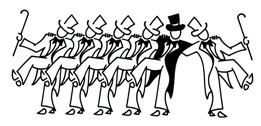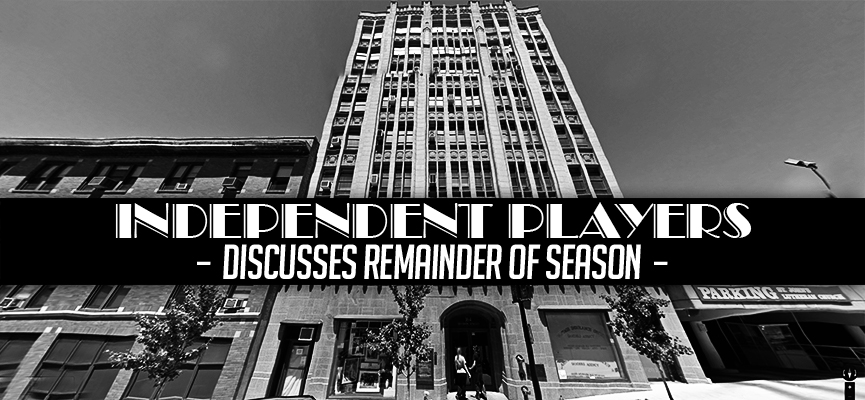The remainder of the 2015-2016 Season of Independent Players is rapidly taking shape at this time. The shows which will complete the season as it now stands have been selected, but because the schedule of dates has not yet been officially set by the City of Elgin, they cannot be announced.
That being said, the show which will be produced in March is entitled The Octette Bridge Club (called by one critic “A Norman Rockwell illustration come to life.”) is a sentimental group portrait that is sprinkled with pleasant touches, old memories and the charm of yesteryear. It concerns eight Irish-American sisters in Providence, Rhode Island, who meet every other Friday night for home baked pie, titillating gossip, banter and bridge. The real comedy and drama begin when they put down the cards and the viewers are privy to “the déjà vu of conversations they, as children, heard from the back seat of the car, around the dining room table, or in the kitchen where mothers and aunts cleaned up after dinner . . . [providing] the same comforting sensation as a kiss on a skinned knee, a warm towel after a bath, or a present under the Christmas tree.” (Fran Wood, New York Daily News) “You feel as if you know these women. Honestly know them.” (Joel Siegel, ABC-TV) As a late night offering after this fantastic play, IP will host one its partners, Femmeprov, which will perform some late night improvisation for anyone who would like to enjoy a fun “nightcap.”
The play which will be presented in May, 2016 is entitled Third, the last play written by Wendy Wasserstein shortly before she died of cancer in 2005. The following is a synopsis of the play and a number of comments made by the critics.
His name is Woodson Bull III, but he prefers to be called “Third.” Professor Laurie Jameson is not inclined to like his jockish, jingoistic attitude. As she puts it, “He is a walking red state.” Believing that Third’s sophisticated essay on King Lear could not possibly been written by “such a specimen,” she reports his plagiarism to the college’s Committee of Academic Standards. Is Jameson’s accusation justified, or is she casting Third as the villain in her own struggle with her relationships, her age and the increasingly polarized political environment?
“It’s the certainty of uncertainty in life that makes Third so affecting…Third exhales a gentle breath of autumn, a rueful awareness of death and of seasons past, that makes it impossible to dismiss it. . .A gracious air of apology and forgiveness pervades its attitude to its characters.” —NY Times
“[Wasserstein] is in a reflective mood here. Funny and occasionally biting, the playwright poignantly marks the passage of time, not only for her conflicted heroine but for several of the other lovingly drawn characters on stage…There are no outright villains in Third…but there are shades of gray, some darker than others.” —Associated Press
“Wasserstein’s new play—her best in years—is thematically richer and more emotionally satisfying than any mere political screed…it’s a story of a woman’s self-reassessment as she heads into the third part of her life.” —Variety
[It] displays Wasserstein’s gift for dissecting the emotional and social states of a certain breed of upscale, highly educated women…Wasserstein’s trademark wit—at one point Jameson describes her student as a ‘walking red state’—is very much in evidence…” —NY Post
“Wasserstein’s] play about a college professor who accuses a student of plagiarism is timely and provocative.” —Broadway.com


